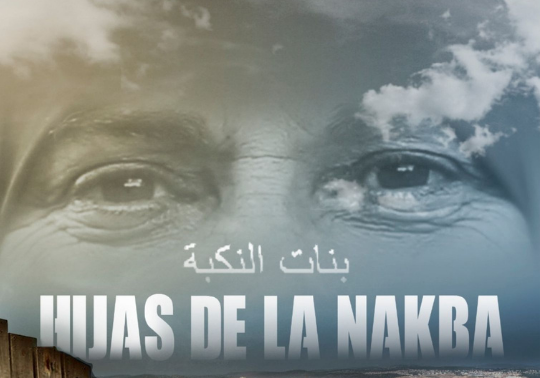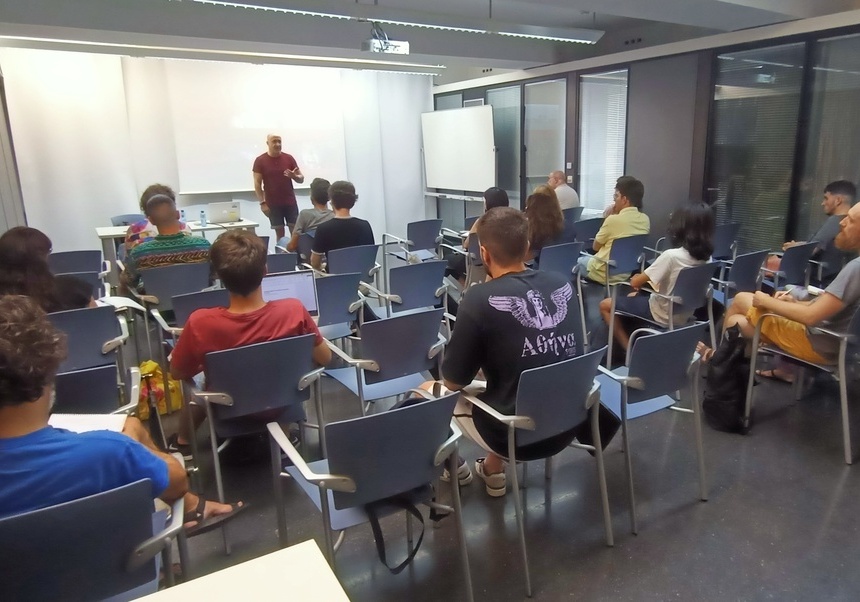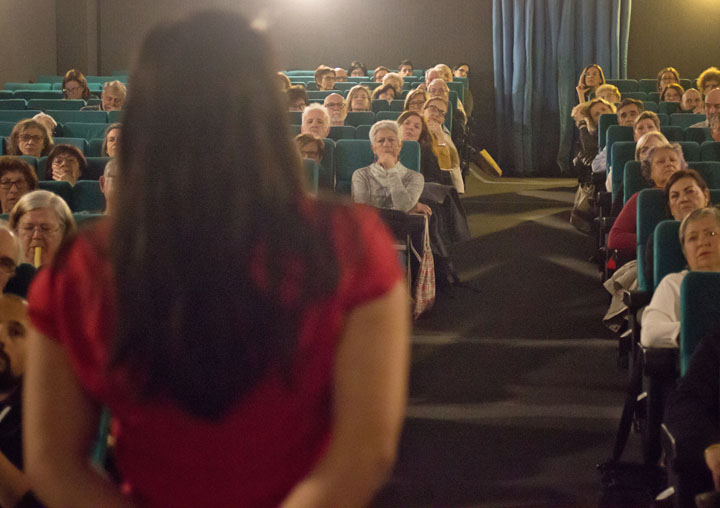Human Rights Institute holds film forum on women in Palestine
- Tarongers Institutes Support Unit
- May 18th, 2021

The Human Rights Institute of the Universitat de València (IDH) is holding a virtual film forum on Thursday 20 May. The event will be open to the public and with limited seating capacity, entitled "Women, resistance and the construction of memory in Palestine", in which the documentary "Daughters of the NaKba" will be screened.
The event, which is organised within the framework of the Master’s Degree and Doctoral Programme in Human Rights, Democracy and International Justice, will start at 17:30h and can be followed via this link:
https://eu.bbcollab.com/guest/3044fd827aa04a6a8dd3988677327f54
The screening of the documentary will be followed by a round table with the participation of Estela Vidal Durà, the documentary’s director; Jaldía Abubakra, a Palestininan activist who took part in the filming and Jorge Ramos Tolosa, professor of Contemporary History at the University of Valencia.
The documentary “Daughters of the NaKba’’ covers the most significant dates and events of the last century of colonization of the Palestinian territory and reveals how Palestinian women have participated and been present in all forms of fight and resistance against the occupation, first British and afterwards Zionist. The documentary inmerses the viewer in the daily lifes of different Palestinian women and in how each of them, in her own way, confronts Israeli colonization, a patriarchal system that is strengthened by with the occupation and a Western view that relegates them to the role of victims.
According to professor Jorge Ramos Tolosa, Palestine “is one of the international and human rights issues that continues to be at the centre of the global diplomatic, media and political agenda, as can be seen these days with the violence of the apartheid state of Israel in Jerusalem. However, is shrouded in many prejudices and stereotypes, especially with regard to issues such as Palestinian women, resistance and memory. For all these reasons, this session will focus on these aspects in order to provide historical and current keys to explain them rigorously and specially through the voices of Palestinian women. The aim is also to demystify narratives and portraits in order to understand that we are primarily dealing with a question of Zionist settlement colonialism active today, initiated at the end of the 19th century and articulated through apartheid and ethnic cleaning -since 1948- and military occupation -since 1967-. It should not be forgotten that neither Zionism nor Israel represented or represent Judaism and that Israel, declared an apartheid state (a crime against humanity) by UN bodies and by NGOs such as Human Rights Watch, has been the most officially condemned state in the world by the UN Human Rights Council”.
Created in 2005, the objectives of the IDH are to spread the values inherent to human rights; to create a framework for reflection and dialogue towards them; to develop the research on human rights; to promote the dissemination of scientific works on human rights, and to promote the teaching on human rights. The Human Rights Institute of the University of Valencia received a grant in 2008 under the Consolider-Intengio 2010 programme. The institute is part of a project involving twelve research groups of different Spanish universities, coordinated by Bartolomé de las Casas Human Rights Institute of the Carlos III University of Madrid. It was the first time that a team made up of researchers from the legal field obtained a grant of this kind, most aimed at scientific contexts far removed from Humanities and Social Sciences.
More information:
File in: Doctorats , Màsters Oficials
















